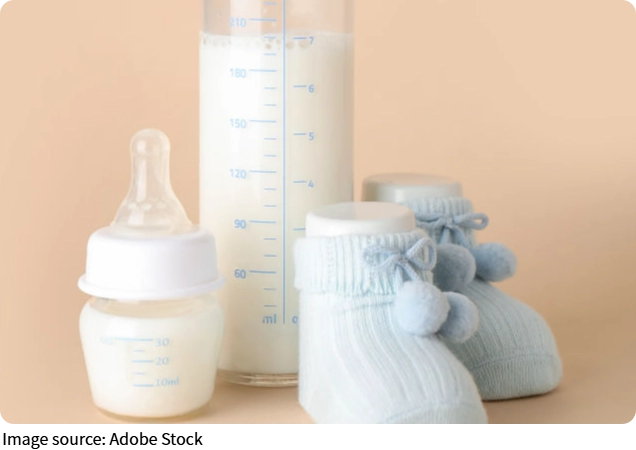Signs Baby Calcium

We all want the best for our little ones, especially when it comes to their growth. Calcium plays a huge role in building strong bones and teeth for babies. Without enough calcium, a baby's development might slow down, and their bones could become weak.
So, knowing how to spot if our baby is low on calcium helps us act quickly to support their health.
What are the common signs of calcium deficiency in babies?
Calcium deficiency in babies doesn't always show clearly at first. But we can watch for certain signs that hint something might be off:
• Frequent muscle twitching or spasms, especially around the face or hands
• Unusual irritability or crying without a clear reason
• Slow growth or delay in reaching milestones like crawling or sitting up
• Soft or delayed tooth development
• Trouble sleeping or restless nights
• Weak or brittle bones that can lead to fractures even with minor bumps
If we notice one or more of these signs, it's a good idea to check with a pediatrician.

How does calcium deficiency affect baby behavior and mood?
We might see our baby becoming fussier or more irritable. That's because low calcium can affect nerve function, leading to muscle cramps or discomfort. Sometimes babies might have trouble calming down or sleeping well. By paying attention to these changes, we can catch potential issues before they get worse.
How to confirm calcium deficiency?
We can't rely only on observation. A doctor can run simple blood tests to check calcium levels. They may also look at vitamin D, since it helps calcium absorb in the body. Sometimes X-rays are needed if the doctor suspects weak bones. It's important we don't guess — professional advice ensures the right treatment.
How can we help our baby get enough calcium?
Once we know the baby needs more calcium, here's how we can help:
• Offer calcium-rich foods suitable for the baby's age, like fortified formula or pureed vegetables like spinach and broccoli
• Ensure the baby gets enough vitamin D through safe sun exposure or supplements if advised by a doctor
• Follow pediatrician guidance on calcium supplements if natural sources aren't enough
We should remember, balance is key. Too much calcium isn't good either, so professional advice is essential.
How can we prevent calcium deficiency?
Prevention is always better than treatment. We can:
• Keep a balanced diet for our baby, full of essential nutrients
• Monitor growth regularly during check-ups
• Avoid skipping vitamin D supplements if recommended by the pediatrician
• Encourage safe sun exposure daily for vitamin D production
By staying attentive, we support healthy growth and avoid calcium problems.

Let's care for our babies together
Lykkers, noticing signs of calcium deficiency early can make a big difference in our baby's health journey. We're all learning and growing as parents, so don't hesitate to reach out to healthcare providers if you have concerns. Together, we can help our little ones grow strong and happy!
What signs have you noticed in your baby? Let's share and support each other!
-
 Cotton's Amazing JourneyWhy and How Does Cotton Grow?
Cotton's Amazing JourneyWhy and How Does Cotton Grow? -
 Closet Space HacksTired of messy wardrobes and wasted space? These 8 simple tricks will help you organize your closet like a pro!
Closet Space HacksTired of messy wardrobes and wasted space? These 8 simple tricks will help you organize your closet like a pro! -
 Parent-Child BalanceWhat's the secret to a strong parent-child bond? Discover how small habits can build lasting love and trust at home.
Parent-Child BalanceWhat's the secret to a strong parent-child bond? Discover how small habits can build lasting love and trust at home.